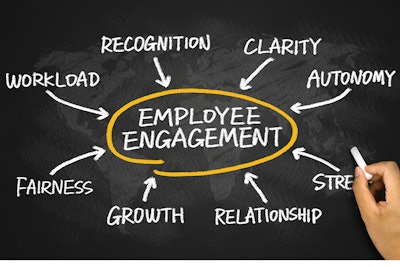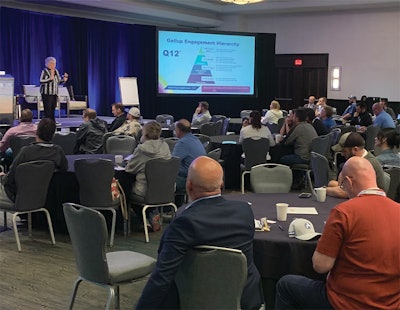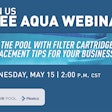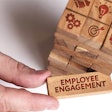
Although Ruby Newell-Legner is not a pool or spa professional, she has inspired new service cultures for owners, managers and guest-relations staff in around 1,700 sports, leisure and recreation facilities all throughout the world for almost three decades. Specifically, she designed customized staff development programs for 400 municipal and county governments, 144 leisure facilities, 97 stadiums and arenas, 66 professional sports teams, 60 schools, universities, colleges and military installations, 44 new facilities, 15 hotels and six international sporting events.
Using Newell-Legner's expertise in leadership, guest experience and employee engagement, one organization moved from the No. 85 to the No. 1 position in the ESPN Fan Experience rankings. She went on to share this specific experience with attendees of the AQUA Live Leadership Retreat in Fort Lauderdale, Fla., this past December, 2023. She set the scene by claiming: "Employee engagement will determine your staff's ability to influence your customers; it's the secret sauce to a successful business."
CUSTOMER SERVICE MANTRA
Newell-Legner began her presentation by asking the audience to raise their hands if their company had an internal slogan. Around a third of the attendees' hands shot up, so she went on to pick a few people from the crowd to share their saying with the rest of the group. Internal slogans like, "We want our clients to make more money" and "Build a better pool for a better customer," were shared. Newell-Legner then shared the internal slogan of the San Antonio Spurs basketball team, of which she helped successfully execute.
"You can tell your staff what it is, but it's better if they're engaged and create the mantra themselves," says Newell-Legner. "It's not necessarily a marketing piece that you put on a billboard; it's something that really resonates with your employees, and it's an internal piece that you're all working towards. However, the mantra can apply, and should apply, to both the internal and external customers.
"Treat everyone like family and create meaningful memories amongst themselves was the mantra, or mission really, of the people who worked for the Spurs. They put that slogan up at the guest entrance, the employee entrance; all throughout the building, really, so that everyone would see it upon arrival. They had events around it, merchandise, you name it, they had it."
After giving the example of the Spurs, Newell-Legner went on to ask the audience an important question. "What steps are you taking as a pool and/ or spa industry leader to really create passion in your employees through the implementation of an internal saying or slogan? Whether it's a strategic plan, or an emotional jingle, your customer service mantra will make a big difference in the happiness and success of your employees, and in turn, your customers."

CLEAR EXPECTATIONS
Another step you can take as a business manager or owner to make a happy and successful work environment is to clearly state the job roles, responsibilities and expectations of all your workers, including yourself.
"When I worked as a facility manager, I replaced the same management position three times in six months; it was like a revolving door," says Newell- Legner. "It's unbelievably disappointing when you invest in someone and take the time to train them, only to have them quit right after, which happened to me two times in a row. I remember sitting down with the third management hire, going over things, and within a week, they were outside my door with a ton of questions. I forgot to tell them everything there was to know about their new job due to the revolving door effect."
It's important to note that as a manager or business owner, you have to make sure your employees, especially your new employees, are given clear expectations in order to effectively complete their work functions. You can't expect anyone to read your mind or know how to do something without direction.
Newell-Legner then went on to ask the audience what three words their employees would choose in order to describe what was expected of them. "The three words should be what your company represents; what you stand for. It's everything we as leaders expect from our employees. And if your employees can't come up with any words, or their words are different from your own, then you don't have clear expectations. In the previous example, I was able to sit down and clearly state I expected customer service, teamwork and initiative from my employees. However, at that time, most of my employees wouldn't have known those three expectations.
"I spent some time defining what each of those three words meant, and I started using them in a variety of places. I used customer service, teamwork and initiative in job descriptions, in interviews, when validating references and when offering someone a position. On their first day of work, regardless of if the new employee was full time or seasonal, I now had a process that outlined my three expectations with concrete examples of each so that they knew what was expected of them from day one. I also gave them a list of don'ts. At the end of that first week of onboarding, I would now ask them what three roles were expected of them above all else, and if they couldn't immediately say customer service, teamwork and initiative, then I hadn't done my job well."
POSITIVE REINFORCEMENT
To emphasize the importance of positive reinforcement, Newell-Legner used the example from when she worked with a professional sports team that went from No. 85 to No. 1 in ESPN's fan-experience rankings.
She started with the franchise employees, and a recognition program. Employees who scored a perfect 100% would get their picture on the wall and a congratulatory buzzer of arrival to work everyday. Management would also thank their employees for providing world-class service on their way out of work.
"Studies say you're 78% more productive at work if you are recognized more frequently," says Newell-Legner. "This statistic goes hand in hand with being more engaged, loving your job and sticking around for the long haul."
These and other efforts to simply recognize and reward excellent work produced immediate results.
"We started out at 4,000 season ticket members, and within the first year of implementing this positive reinforcement plan, we sold 10,000 tickets, which included personal jerseys," says Newell-Legner. "If the season ticket members wore their customized jerseys to the games, they would get 35% off merchandise and 25% off concessions, which incentivized them to wear the jersey even more. We eventually went up to 14,000 members within 18 months, which got us from the No. 85 spot in the ESPN fan experience to the No. 1 spot in all of sports. Moral of the story — if you set a bar that everybody can reach, and they get rewarded for reaching it, then all your employees will be incentivized to succeed, which in turn, makes your business succeed."
This article first appeared in the February 2024 issue of AQUA Magazine — the top resource for retailers, builders and service pros in the pool and spa industry. Subscriptions to the print magazine are free to all industry professionals. Click here to subscribe.






































